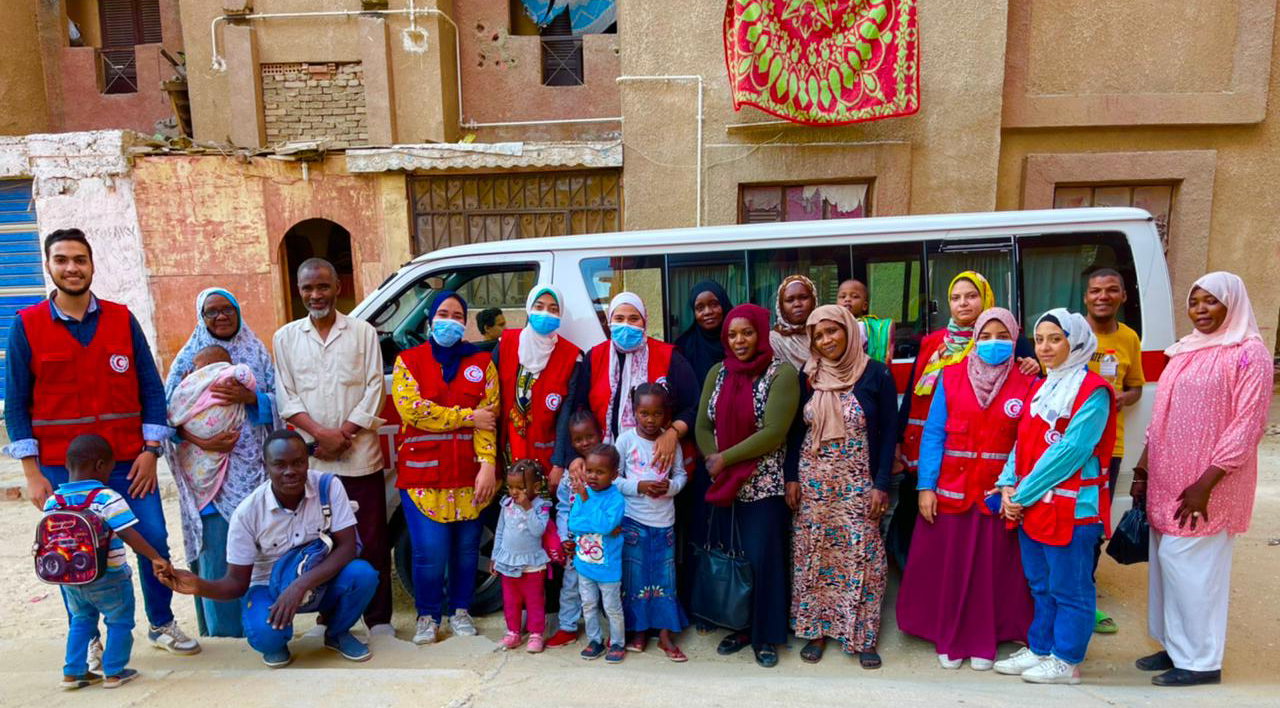Cairo has nearly 22 million inhabitants and is struggling with overcrowding. High population growth and a poverty rate of about 25% mean that many people must compete to access jobs, housing, and public goods such as health care, education, and sanitation.
Among the most vulnerable population groups in Cairo are migrants and refugees. Egypt’s location between the Middle East, Africa and Europe makes it a key transit and destination country for migrants and refugees from Sub-Sahara Africa and Syria. Living in impoverished urban areas where local Egyptian communities are already struggling with difficult living conditions, migrants often face discrimination, rejection and violence. They have limited options for economic activities and struggle to access public goods. Linguistic barriers, especially for migrants from Sub-Saharan Africa, further contribute to their marginalization and risk of exploitation.
In 2017, the Swiss Red Cross (SRC) teamed up with the German Red Cross and the Egyptian Red Crescent (ERC) to work on community resilience and social cohesion in Cairo’s neighborhoods with a high ratio of migrants. With back-donor funding from the EU[1] and SDC, the ERC has been running six community hubs where migrants and Egyptians can access free-of-charge health services and get support to enhance their economic opportunities. The hubs, run by a mix of ERC staff and volunteers, also recruit volunteers among the different migrant groups, who increase access to the communities and provide translations when needed.
While migrants can theoretically access governmental health providers, there are, in reality, many barriers, such as language, discrimination, and quality of service. Therefore, the services at the hubs include primary and secondary health care (e.g., paediatrics, gynaecology, dermatology), provision of free medicine, screening for communicable and non-communicable diseases, and health education seminars.
The mental health burden of migrants is high, given the circumstances they faced in their homelands and on the journey, and the often difficult resettlement in their new environments. Thus, psychosocial support is part of the essential services provided at the hubs.
To improve their income opportunities, migrants and host community members can also benefit from vocational skills training (e.g., sewing, mobile phone maintenance) at the hubs and partner training centres. Graduates receive seed funding to start their micro-enterprise. Further, employability training help migrants find paid employment to secure a steady income for themselves and their households.
The SRC notes that the services provided at the different hubs in Cairo improve the users’ health and economic opportunities, thus strengthening their overall resilience. Social cohesion in the neighborhoods is tackled by providing services not only to migrants and refugees but also to local Egyptians, which excludes nobody and fosters positive contact between different groups.
[1] EU Emergency Trust Fund for stability and addressing root causes of irregular migration and displaced persons in Africa


